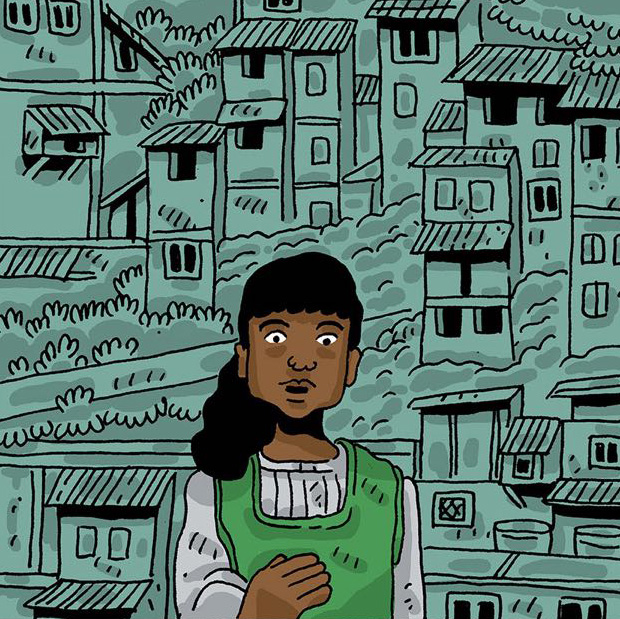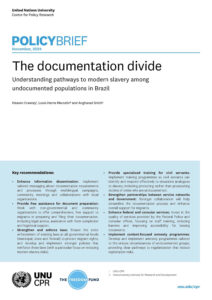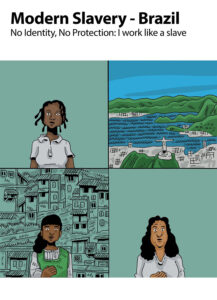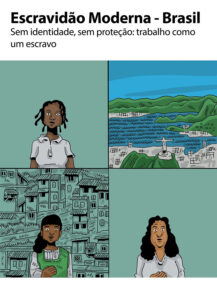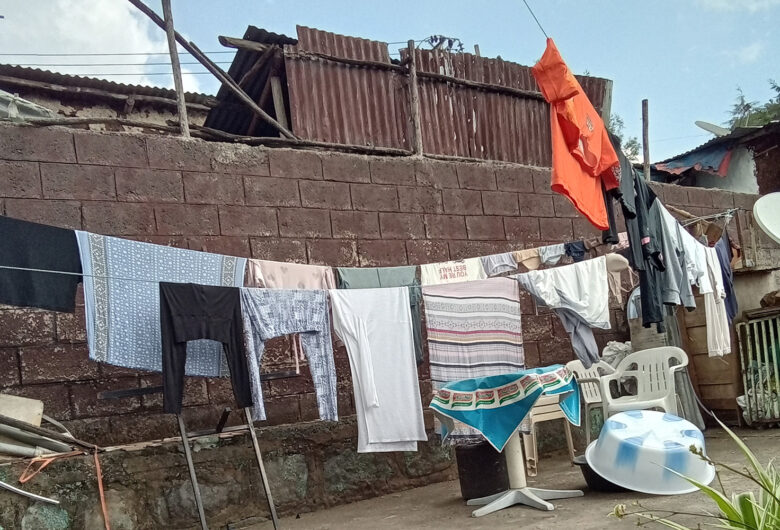A new Policy Brief by United Nations University Centre for Policy Research (UNU-CPR), supported by the Freedom Fund, examines how lacking access to official documentation in Brazil deprives people of basic rights, increasing their vulnerability to marginalisation and exploitation.
Migrants and refugees, particularly from Haiti, Bolivia and Venezuela, face significant bureaucratic hurdles, discriminatory practices, and financial constraints that impede their ability to obtain essential documents like identity cards and proof of address. Without documentation, individuals are often excluded from legal protections, limiting opportunities for regular employment and increasing the risk of modern slavery.
Despite existing frameworks aimed at regularising migrants’ status, many participants in the study described common challenges such as language barriers, lack of credible and accurate information, and complex requirements for multiple documents. Limited access to registration offices and the cost of obtaining necessary paperwork further hinder vulnerable populations from regularising their status.
Key actions to address these issues include expanding free legal support through NGOs, streamlining bureaucratic processes, and increasing awareness of documentation requirements. Strengthening coordination between consulates, government agencies, and civil society is essential to ensuring broader access to documentation and reducing vulnerabilities to exploitation.
Explore the complete findings and recommendations in the Policy Brief. Also available in Portuguese.
Gain insights into the real-life experiences of undocumented individuals, thoughtfully illustrated into comics by PositiveNegatives, available in both English and Portuguese.
